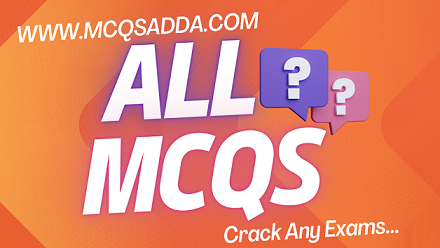Prev 1 2 3 4 5 Next
1. Which among the following statements is correct about the Prime Minister of India?
A. He cannot dismiss any of his ministers
B. He is responsible to the Parliment
C. Prime Minister is the nominal head of the Councils of Ministers
D. Prime Minister is the real head of the Council of Ministers
ANSWER: D.Prime Minister is the real head of the Council of Ministers
SOLUTION : The Prime Minister of India has full discretion in the choice of persons who are to serve as ministers in his cabinet. In India`s parliamentary system, the Prime Minister is the head of the government and has significant powers and responsibilities.
2. Who may require the president at the time to reconsider the article 74?
A. Union Ministers
B. Council of Ministers
C. State Minister
D. All of the above
ANSWER:B.Council of Ministers
SOLUTION:Provided that the President may require the Council of Ministers to reconsider such advice, either generally or otherwise, the President shall act by the advice tendered after such reconsideration.
3. All the executives action of the government shall be expressed as taken by the name of ______.
A. President
B. Prime Minister
C. Chief Minister
D. Council of Ministers
ANSWER :A President
SOLUTION:All executive action of the Government of India shall be expressed to be taken in the name of the President.
4. In the council ministers, the total strength of Lok Sabha should not be exceeded_______.
A. 17%
B. 16%
C. 15%
D. 14%
ANSWER: C.15%
SOLUTION: According to Article 71 of the Ninety-First Amendment Act, 2003, the number of Ministers, including the Prime Minister, in the Council of Ministers cannot exceed 15% of the total strength of the Lok Sabha.
5. The salaries and allowances of ministers shall be determined by the ________.
A. Supreme Court
B. Rashtrapati Bhavan
C. Parliament
D. High court
ANSWER:C.Parliament
SOLUTION: According to the Act ,these salaries are determined by the Parliament from time to time.
6. A minister who is not a member of the Parliament (either house) for any period of _______ shall cease to be a minister.
A. Six consecutive months
B. More than Six Months
C. Less than Six Months
D. None of the above
ANSWER: A.Six consecutive months
SOLUTION: A minister who, for any period of six consecutive months, is not a member of either House of Parliament shall at the expiration of that period cease to be a minister.
7. President can appoint only those persons as ministers who are recommended by the _______.
A. Union Minister
B. MP
C. Prime Minister
D. MLA
ANSWER: C.Prime Minister
SOLUTION:Thus, the President can appoint only those persons as ministers who are recommended by the Prime Minister.
8. Who shall be appointed as ministers as the member of parliament?
A. BJP
B. Congress
C. DMK
D. Lok Sabha & Rajya Sabha
ANSWER: D.Lok Sabha & Rajya Sabha
SOLUTION: (1) The Prime Minister shall be appointed by the President and the other ministers shall be appointed by the President on the advice of the Prime Minister. (2) The ministers shall hold office during the pleasure of the President.
9. A minister gets salary and allowances that are _______ to a member of Parliament.
A. Receivable
B. Payable
C. Funds
D. Charity
ANSWER: B.Payable
SOLUTION: “The Members of Parliament are entitled to salary in terms of the Salaries and Allowances of Members of Parliament Act,. 1954,
10. All the ministers own joint responsibility to the Lok Sabha for all their acts of _______.
A. Decision making
B. Affection or ill will
C. Team making
D. Omission and commission
ANSWER:D.Omission and commission
SOLUTION:
Article 75 clearly states that the council of ministers is collectively responsible to the Lok Sabha. This means that all the ministers own joint responsibility to the Lok Sabha for all their acts of omission and commission.


